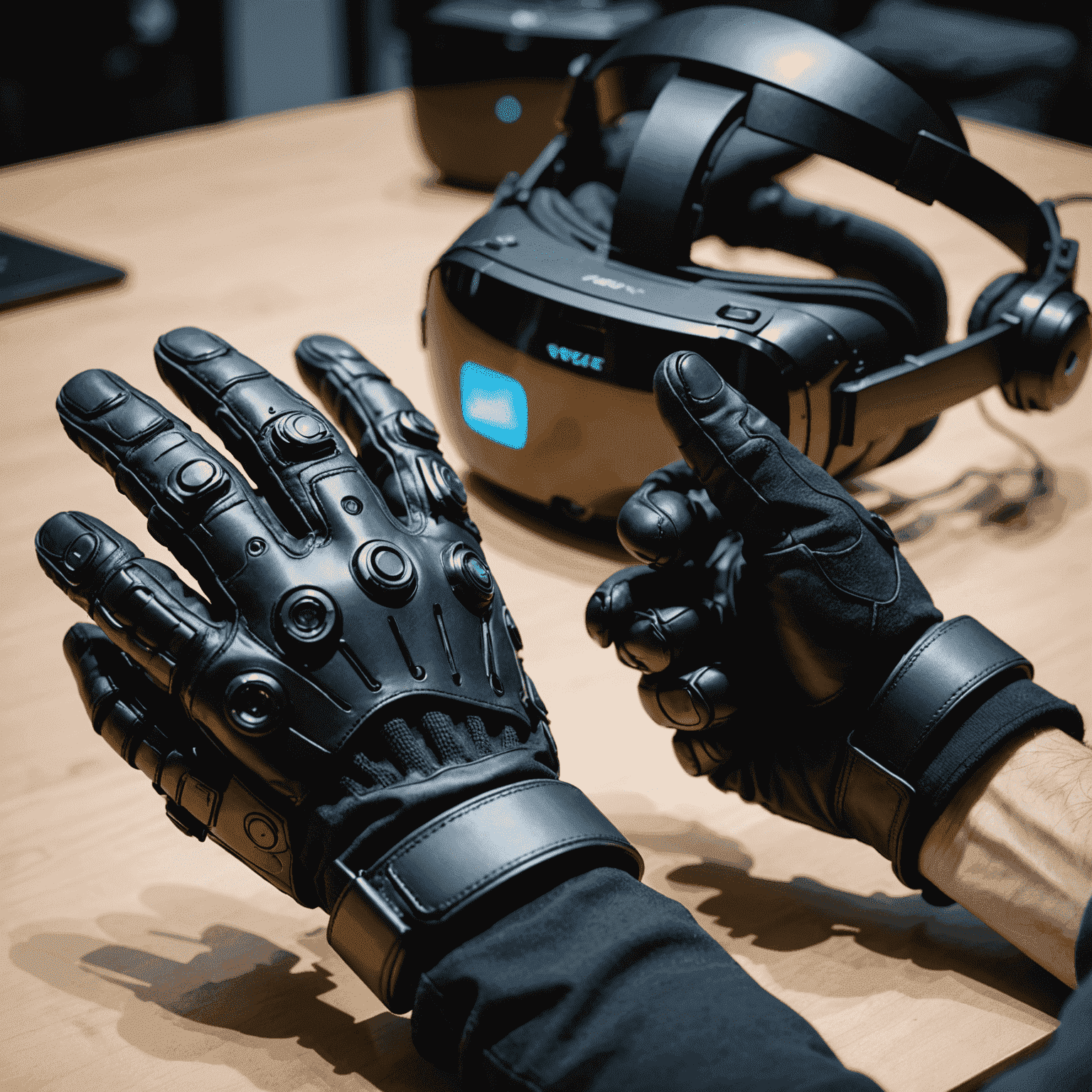Virtual Reality: The Next Frontier

Virtual Reality (VR) is revolutionizing the game development industry, offering unprecedented levels of immersion and interactivity. As we delve into the latest advancements in VR technology, it's clear that we're on the cusp of a new era in gaming experiences.
Breakthrough in VR Hardware
Recent innovations in VR headsets have significantly improved resolution, field of view, and comfort. The latest models boast 4K per eye resolution, providing crystal-clear visuals that blur the line between virtual and reality. Lightweight designs and advanced ergonomics allow for extended play sessions without discomfort, addressing one of VR's longstanding challenges.
Haptic Feedback: Feeling the Virtual World
Haptic technology has made leaps and bounds, allowing players to feel the virtual environment like never before. From subtle vibrations to simulate textures to more complex force feedback systems, these advancements are adding a new dimension to immersive gaming.

AI-Driven NPCs and Environments
Artificial Intelligence is enhancing VR experiences by creating more realistic and responsive virtual worlds. NPCs (Non-Player Characters) now exhibit complex behaviors and can engage in natural conversations, making virtual interactions more meaningful and immersive.
Cross-Platform VR Development
Game developers are now focusing on creating VR experiences that work seamlessly across different platforms. This trend is expanding the reach of VR games and applications, making them accessible to a wider audience and fostering a more connected VR ecosystem.
Social VR: Connecting Players in Virtual Spaces
The integration of social features in VR is transforming multiplayer gaming. Players can now interact with each other's avatars in shared virtual spaces, adding a new layer of social connectivity to gaming experiences.

The Impact on Game Development
These advancements are not just enhancing player experiences; they're also revolutionizing the game development process itself. VR tools allow developers to design and test games in virtual environments, providing a more intuitive and efficient workflow.
Challenges and Future Outlook
While VR technology has come a long way, challenges remain. Content creation for VR is still complex and time-consuming. However, as tools become more sophisticated and accessible, we can expect an explosion of innovative VR content in the coming years.
As we look to the future, it's clear that VR is not just a passing trend but a fundamental shift in how we interact with digital content. For game developers, this presents an exciting opportunity to create experiences that were once thought impossible. The next frontier of gaming is here, and it's more immersive, interactive, and innovative than ever before.